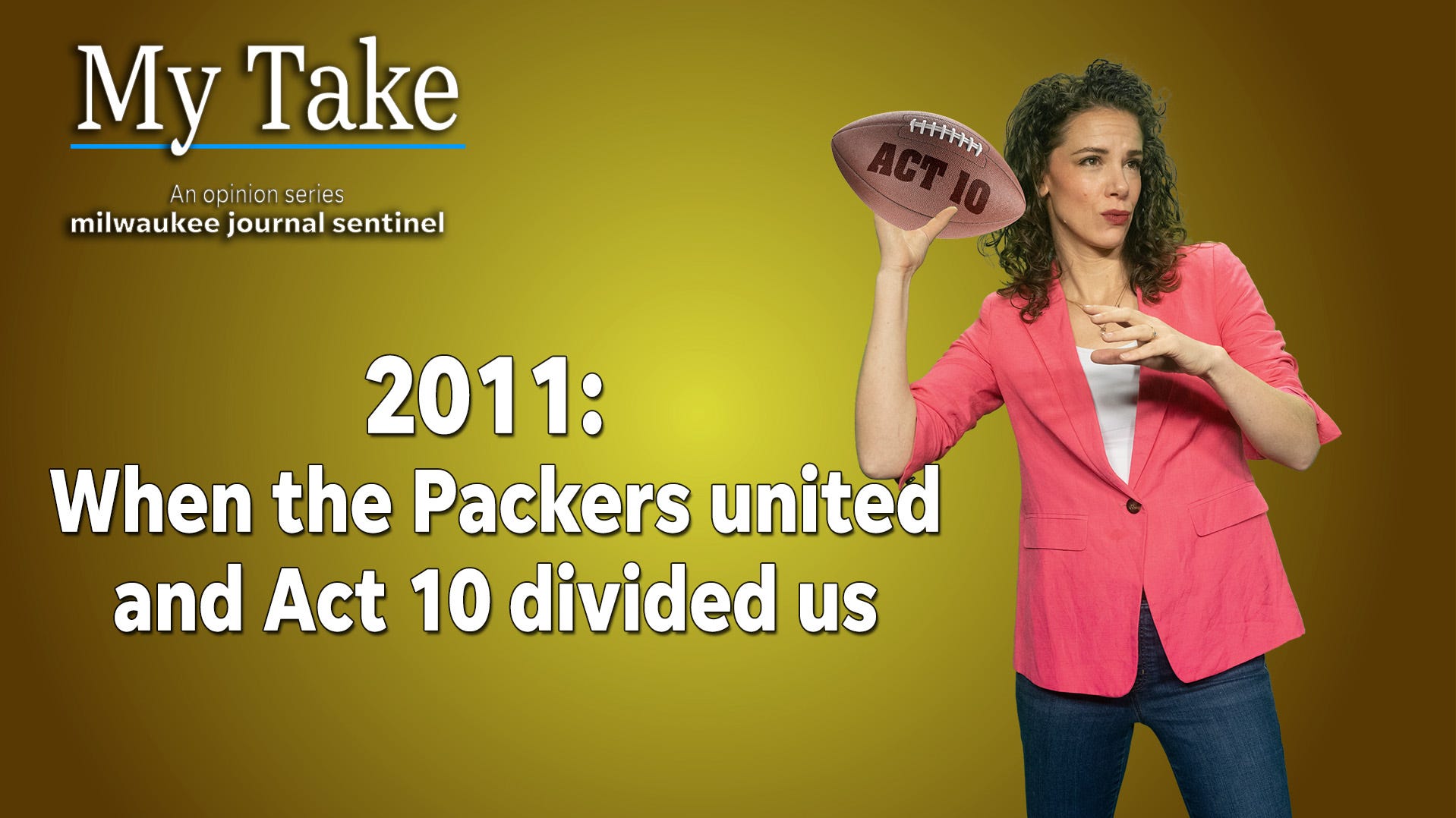You may or may not remember that almost 14 years ago, two major back-to-back national news making events centered on Wisconsin happened within days of one another. One united us. The other left us bitterly divided.
Of course, I’m talking about the last time the Packers won the Super Bowl and the passage of Act 10, which is back in the news after a judge overturned the law on Dec. 2.
Super Bowl XLV was on Feb. 6, 2011 at AT&T Stadium in Arlington, Texas. In front of a crowd of just over 100,000 people, the Packers beat the Pittsburgh Steelers 31-25, ending our 14 year drought and instilling hope that our young quarterback, Aaron Rodgers, could lead us to more championship seasons.
Eight days later, on Feb. 14, protests of former Gov. Scott Walker’s introduction of Act 10 began.
Act 10 ended collective bargaining rights for most public unions
By the end of the month, 100,000 people were protesting the introduction of the law that ultimately stripped collective bargaining rights from thousands of state employees in Wisconsin, limiting their ability to bargain solely on wage increases. It also forced public sector labor unions to annually vote, with a majority of members participating and voting, to maintain certification.
In the years since the last Packers championship and the passage of Act 10, the Packers have been trying as hard as the Democrats and workers rights advocates to claw their way back to that 8 day window where we were champions and had strong protections for public employees.
Since Super Bowl XLV, the Packers have only missed the playoffs three times and been one game away from the Super Bowl four times. As for the efforts to restore or rectify Act 10, when the short term protests failed, there was a grassroots effort to recall Walker, which also failed. In fact, he went on to be reelected for a second term.
Over the next couple years, multiple state and federal courts upheld Act 10 and the law hasn’t changed despite all these efforts.
But maybe 2025 could be the year that changes for one or the other. Or maybe even both.
Dane County judge rules that Act 10 unconstitutional
If you somehow missed the news, a Dane County judge struck down more than 60 sections of Act 10. Judge Jacob Frost said that parts of Act 10 are unconstitutional because the law treats some public safety officers, such as municipal police officers, differently than others. By carving certain public employees out of the collective bargaining restrictions, Frost said, the law violates principles of equal protection.
While there was celebration of this news by some, I can’t help but think that a celebratory reaction is similar to hearing that the Packers have a 98% chance of making the playoffs and ignoring the fact that they only have about a 5.6% chance of winning the Super Bowl.
Because whether we are talking about the Packers road to another championship or Act 10 being permanently dismantled, there is a lot that still has to happen.
Not even 24 hours after the ruling, Republicans in the Legislature filed an appeal of the ruling with the Waukesha Court of Appeals — a court seen by many as friendly toward conservative causes.
However, there could also be a request for the state Supreme court to take up the case directly, bypassing the court of appeals.
But whether a court reverses Frost’s decision or the case skips ahead, either way, this case will end up in front of the Wisconsin Supreme Court. The unknown variable is, when will it and what will the court look like when it does.
The court is currently controlled by progressives, who are generally opposed to Act 10. But remember, we have another Supreme Court seat election on April 1 that will either flip the court back to a 4-3 conservative lean or a 5-2 liberal lean.
Now, It’s unlikely that the state Supreme Court will decide the issue before the April election. But they could decide it before August, which is when the justice who wins the April election would be taking their seat on the court.
But if the Wisconsin Supreme Court does not hear this case prior to April’s election, Act 10 is effectively on the ballot and it’s unclear who that gives an advantage to: the left or the right.
On the one hand, the last time Act 10 was on the ballot in 2012, when Walker survived his recall, he got 200,000 more votes than he got when he was elected in 2010. It was not a winner for Democrats then.
Unions have seen resurgence in the decade since Act 10 enacted
Conversely, populism is a core tenant of Trump’s Republican party, which courted union support in the last election.
Additionally, unions’ popularity has been seeing a resurgence. A September Gallup poll found near record-high approval of labor unions with 70% of Americans saying they approved of unions, compared with 48% approval in 2009.
You could argue that the leanings and opinions of a 2025 Wisconsin electorate compared to 2011, is as different as the Packers lineup. Well, maybe not as different, but different enough that I don’t think either side can bank on the dismantling or upholding of Act 10 as a electoral “extra point kick” (I wanted to say “layup” but then decided against mixing sports metaphors).
Basically, nothing is promised. There are a lot of unknowns and a lot that still has to play out, both in this court case and the 2024 NFL season.
But if you are a betting person, what are you putting your money on being more likely in 2025? Packers winning the Super Bowl or Act 10 being permanently overturned?
Kristin Brey is the “My Take” columnist for the Milwaukee Journal Sentinel.

